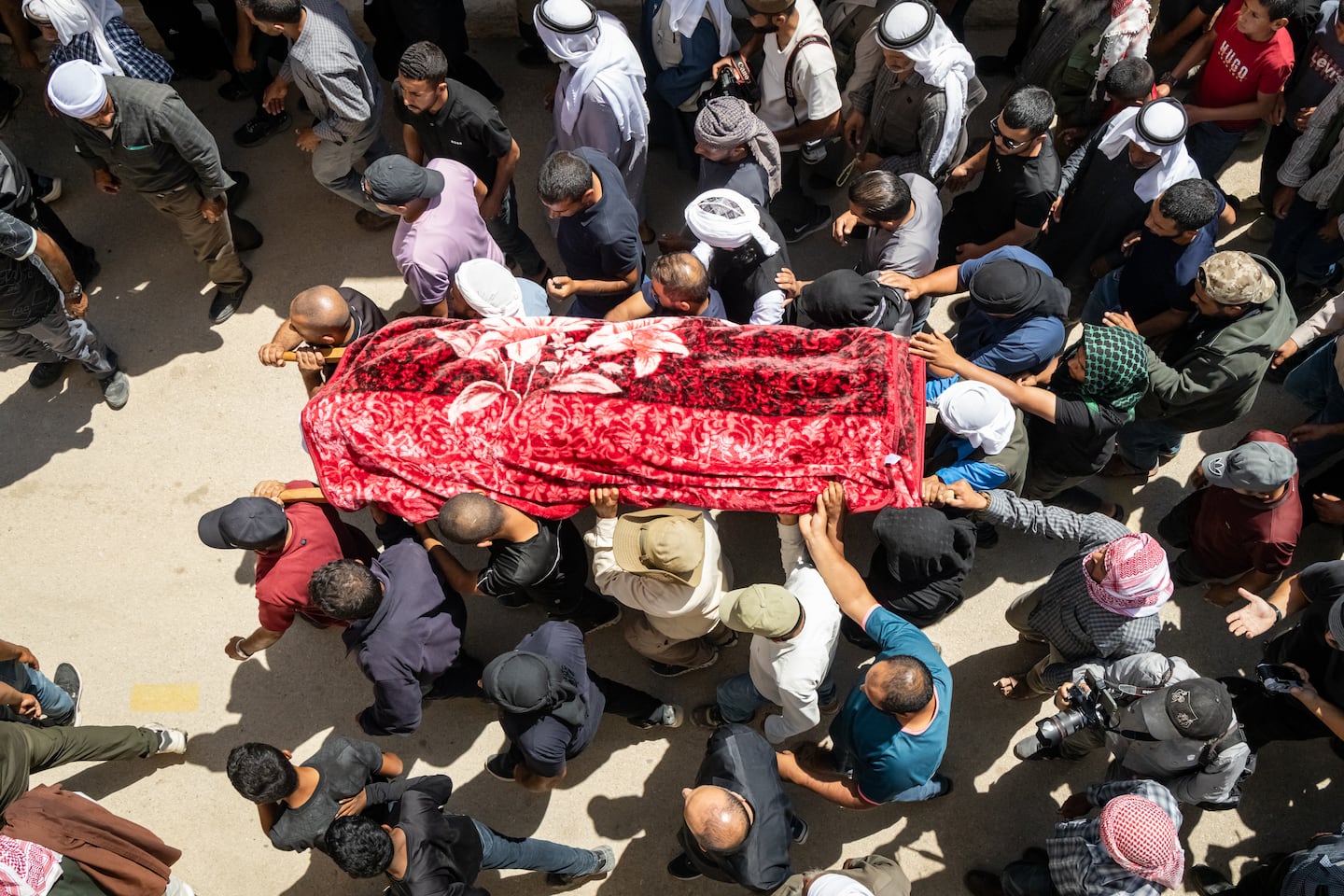31-year-old Palestinian human rights defender and teacher, Awdah Hathaleen, was finally laid to rest on Thursday, as Israeli authorities released his body after 11 days of prolonged uncertainty and grief for his family and friends.
The beloved teacher and human rights defender was killed by a settler in late July, and the village of Umm al Khair has faced a targeted campaign of intimidation and assault by Israeli authorities in the weeks since.

Just hours after the release agreement was made, Israeli military established temporary roadblocks on the highway and at the village entrance - barring many from attending the funeral. Despite the tight restrictions, around 600 people still managed to attend.
His burial marked the end of a week-long hunger strike for over 60 of the village’s women - including Hathaleen’s mother, wife, and sister- demanding the return of their loved one.

Among other demands, Israel’s release conditions ordered that Awdah was buried in the neighbouring town -also named Umm al Khair- rather than with the rest of his family in their village cemetery.
Awdah’s body was seized on Monday 28th July after he was shot dead by Israeli settler, Yinon Levy, a known extremist sanctioned by multiple countries including New Zealand.

In the days following, 19 of Awdah’s family were unjustly detained and assaulted, while his killer walked free without charge.
The detainees reported physical assault and humiliation in Israel’s infamous Ofer Prison including kicking, beatings, and long periods blindfolded and tightly handcuffed.

They were each charged 500 shekel for their release and remain banned from discussing Monday’s events together or approaching within 100 metres of the neighbouring Israeli settlement for 60 days.
The shooting was captured on video by multiple witnesses, yet despite the overwhelming evidence, Israeli courts ruled Levy was acting in “self-defense”.

Just a week after the shooting, the extremist was back in the Palestinian village continuing the same unlawful excavation project behind the community centre where residents continued to mourn - and tearing up critical water pipes which has left the southern side of the village without water.
The neighbouring Israeli settlement of Carmel was illegally established in 1980 on the farmland Awdah’s grandparents bought when they were expelled by Israel’s violent establishment in 1948.

Since then, it has expanded with impunity, leading to repeated settler violence, house demolitions, night raids, arrests, and killings - with no accountability.
Awdah’s uncle was run down by a settler during a police operation in 2022, and similarly his killer was never charged.

In 2024, Umm al Khair faced a series of mass state-backed demolitions worse than any previous campaign, in one case over 11 homes were destroyed in a day.
And over recent years the village has become hemmed in on all sides by settlement outposts -illegal even under Israeli law - which have all but suffocated their Bedouin herding traditions.

Following the establishment of an olive grove in the centre of their village earlier this year, residents fear the continued excavations are paving the way to establish yet another outpost which will split the village in two and pave the way for further demolitions and forced expulsion.
Human rights observers and activists say Hathaleen’s death underscores a broader pattern of impunity for settler violence in the occupied West Bank.

Critics accuse the Israeli government of enabling and protecting such actions as part of a broader policy of de facto annexation and displacement of Palestinian communities.
Despite widespread consensus that Israel is upholding a system of Apartheid, committing genocide in Gaza, and the stated intention of Israeli officials to annex the West Bank and resettle in Gaza, the New Zealand government remains remarkedly unchanged in their policy approach to Israel.

Critics say the coalition leaders have done nothing to prevent such violations - issuing statements of condemnation, reiterating a long-standing policy in support of two states, and placing individual travel bans on 33 extremist Israeli settlers and two cabinet ministers.
While Awdah’s burial marks a long-awaited farewell for many and one less uncertainty for loved ones; closure remains far away from the community as the battle continues to see his killer brought to justice.



